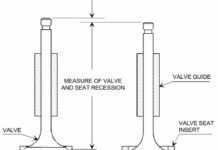James Baker famously called it “the worst ^%$&ing job in government.” He was referring to the job of White House chief of staff but he may as well have been talking about being FAA administrator. If it’s not the second-worst job in government, it’s surely in the top five.
Now comes Steve Dickson, late of Delta Air Lines, to line up for the corner office at 800 Independence Ave. Nothing confirmed yet, but he’s the leading contender. First of all, as simply a measure of character, the fact that he hasn’t yet withdrawn his name and run screaming into the night shows he’s made of sterner stuff than, say, a tattooed ultimate fighter or a Navy SEAL, occupations that are the mere equivalent of Girl Scout troop leader compared to running the FAA.
When I was scanning his resume, dj vu swept over me and I thought … Dave Hinson! Yup, full circle in a little over 20 years. Hinson, you may recall, was FAA administrator for 39 months from 1993 to 1996, during the Clinton administration. You may also recall that it was an eventful three years. AVweb launched in the middle of that period and I wore my fingers to nubs writing about the ValuJet crash. Ultimately, the FAA got dinged for poor maintenance oversight. The agency’s mahogany row took some casualties on that one.
More opprobrium came Hinson’s way when seven-year-old Jessica Dubroff died in the crash of a Cardinal in Cheyenne, Wyoming, in April 1996, attempting to set the record as the youngest transcontinental pilot. What started out as one of those feel-good GA stories we all love and cherish metastasized into the Child Pilot Safety Act. Personally, I can hardly think of the act or the tragedy that inspired it without agita and embarrassment. It came at Hinson not from left field, but from Mars. As the Karmic wheel creaks past 360, here we go again.
Then there was Roselawn. You forgot about that one, right? Oct. 31, 1994: An American Eagle ATR 72 holding for O’Hare in severe icing rolled inverted into an Indiana soybean field. The NTSB found that the ailerons were subject to reversal because of ice damming that got past the boots in super-cooled drizzle drop conditions. The NTSB—and here, I’m going to italics because it’s the writer’s way of turning on an echo effect—said it questioned the FAA’s ability to oversee aircraft certification. If you can’t see where this is going, Google MAX 8.
Veering from the shoulder back to the center lane of my narrative, Hinson’s background was as a military pilot, an airline pilot and an airline executive, specifically Midway Airlines, which he started. Hinson also operated an FBO and flew GA airplanes, so that drew an endorsement from AOPA.
Steve Dickson has a similar background. Air Force Academy grad, F-15 pilot, line pilot and airline executive at Delta, from which he recently retired. Does this make him the ideal qualified candidate? Mark Baker at AOPA thinks so; click the check box for general aviation endorsement.
I’ve never bought the argument that the administrator ought to be a pilot. Maybe that’s important, maybe it isn’t. The critical job skill is to manage a giant, bloated, intransigent bureaucracy that’s constantly buffeted by domestic and international political winds and which congress bats around like a cat with a rubber mouse. It’s more of a Survivor type show than, say, Shark Tank.
Interestingly, although he was excoriated for not being able to see ValuJet, the Dubroff crash and Roselawn coming, in retrospect, Hinson was captive to both events and an entrenched federal edifice resistant to change. If Dickson takes the job, he’ll at least have the benefit of knowing what ^%$#storms he’ll have to navigate: the aftermath of the Boeing MAX 8 certification fiasco, unmanned drones in the civil airspace, urban air taxi, the implementation of NexGen, the fight over ATC privatization—which he is said to oppose—the post-Brexit wreckage, a new emerging supersonic age, space tourism and a constant battle over reauthorization funding. Then, on his second day on the job, I’m sure something else will come up.
But compared to everything else, the MAX certification lapse by the FAA will be all consuming. It’s already a raging, black hole soon to suck in everything in the known air transport universe and that’s before congress gets seriously involved. In the best of times–I’m having trouble coming up with an example of that–the administrator’s job is like flying turns around a point by pivoting a hand out the window. Positive control is elusive at best, non-existent at worst.
In the popular press, the rising sentiment seems to be that in the MAX fiasco, the FAA and by extension, the U.S., has ceded something the country has always been said to own: World leadership in aerospace technology, with an emphasis on safety. If I were a lawyer, I wouldn’t argue that case, but the new guy at the FAA will have to.
Here’s hoping for one of those Bull Halsey no-great-men-just-great-challenges moments. The bright spot is that Mr. Dickson will be starting at rock bottom, making up the only direction left.
Note to Readers:No, it’s not something you said. Because of persistent denial of service attacks against AVweb, we’re moving the site to another platform. The commenting section will be unavailable for a time. I apologize for the inconvenience, but the site will be better for it in a week or two. In the meantime, if you have a comment, e-mail me and I’ll append it to the blog.
I sure hope Mr.Baker of AOPA is correct about Mr. Dickson. The last time AOPA sent praises for an Adminstrator candidate, that individual (Huerta) showed to be nothing but a bureaucrat, fighting the 3rd class medical changes along with other GA issues. I myself have doubts. –Matthew Wagner
If it takes as long to confirm his appointment as it has for a lot of other agency positions, it will be in the next administration before it happens.–John McNamee
Certainly some things must change within the FAA (though I’m not certain that more oversight would have caught the [alleged] MAX issue. In the software biz, we’d say “works as designed”, even if that design wasn’t particularly astute.) The entire medical system needs to be overhauled (as in ditching it entirely for piloting small, low, and slow planes), transient parking space needs to be provided at federally funded GA airports (don’t wanna buy seven dollar gas to avoid a $75 ramp fee), and the unleaded gas initiative needs more initiative, from the GA perspective. (OK, from MY GA perspective!) Good luck to the new guy; he will certainly need that, to go with his skills. –Richard Phillips
The new guy to be confirmed will be up to his eyeballs in alligators known as part of the Federal “swamp”. Gee, I thought the “swamp” supposed to be drained? Promises…promises.
I have no sympathy for the next FAA head. It takes a narcissist to want to run for any leadership position in our non-republic today. Any attention, good or bad, is the fuel these people crave. The “new’ NexGen FAA is a perfect place for scads and scads of attention but with the option to lay blame in all sorts of directions except themselves, when the attention becomes a bit uncomfortable.
Sadly, 350+ people died in a macabre game of airliner “Lawn Darts” with the past and current reign of “swamp” drainers, who allowed a mysterious behind the scenes “safety” enhancement to be certified and installed without telling the purchasers, the maintenance departments, and the flight crews. And then the FAA and Boeing had the unmitigated gall to say those purchasers, the passengers, the maintenance and flight crews… and now the families of the deceased…they had no “need to know”. And when they finally did, it was through a customer service bulletin.
And Boeing still has not finished an appropriate fix to MCAS, but it is coming soon, they have promised. This tells me the solution is not an easy upgrade, and it will be at best, a rushed one with no guarantee this solution is any improvement over the original problem. The current NexGen FAA is no different today than when the 737MAX 8-9 were certified. The certification process for the MCAS “improvement” is no different. So, I see no real gain in safety…just the appearance of safety, because the 737 MAX must fly again. It is more than just a change in the thrust line of the engines that required the incorporation of MCAS. This airplane is now fundamentally different than the 737 predecessors. So, Boeing has no choice but somehow make MCAS work. And to save any kind of face, the same FAA who allowed the original certification of MCAS, is the same FAA who will approve the “fix”. I am sure that will come quickly. But will it solve a problem or create new ones?--Jim Holdeman


































